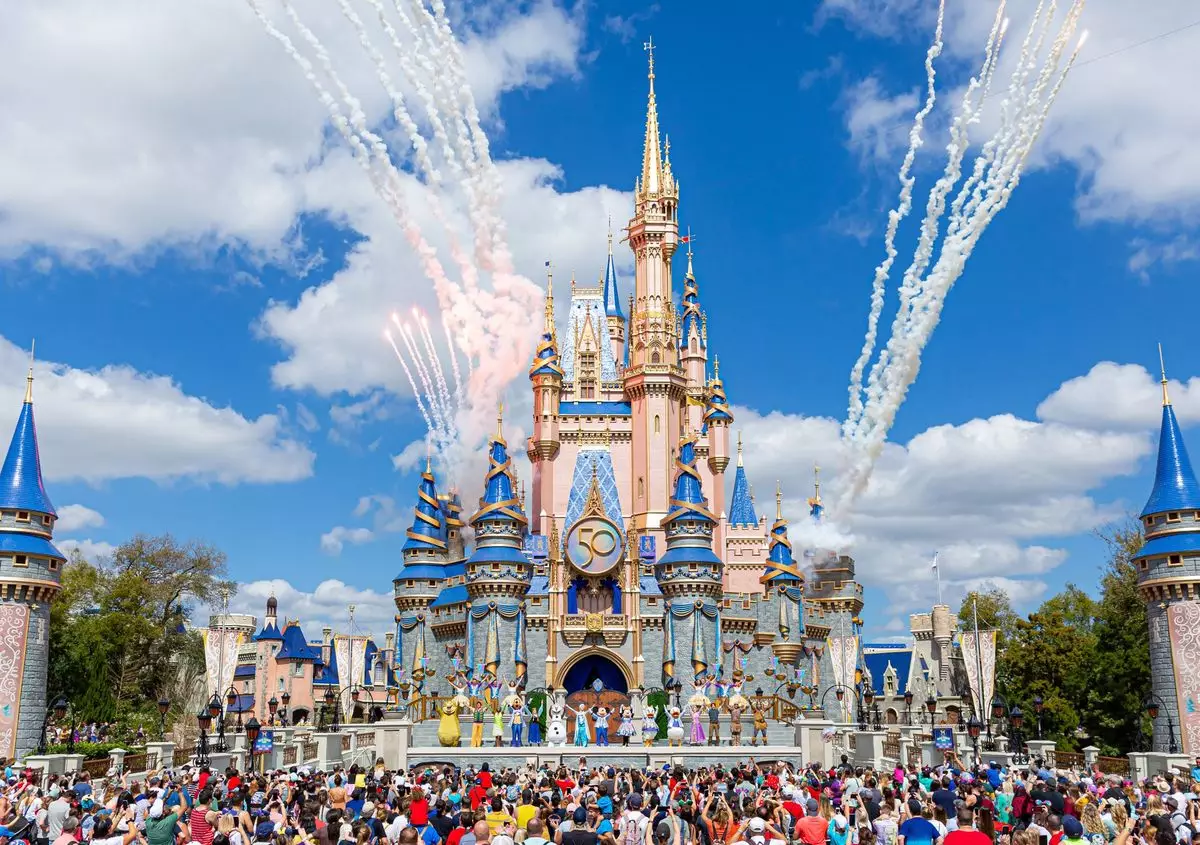In Disney’s fiscal Q3, there was a noticeable moderation in the demand for Disney theme parks, a trend that is expected to continue for the next several quarters. However, despite this moderation, revenue in the Disney Parks, Experiences and Products division saw growth. The company reported that park attendance remained comparable year over year, with guest spending slightly increasing. This “slight moderation” in demand was acknowledged by CFO Hugh Johnston during the company’s earnings call, indicating a need for close monitoring of consumer behavior.
The overall revenue of the parks/experiences division increased by 2% in the quarter, reaching a total of $8.2 billion. Domestic park revenue saw a 3% increase, while international park revenue was up by 5%. However, consumer products revenue experienced a decline of 5%. Operating income for parks/experiences decreased by 3%, amounting to $2.3 billion. The operating income of domestic parks dropped by 6%, whereas operating income for international parks and consumer products each saw a growth of 2%. Disney attributed the decline in domestic park income to increased costs due to inflation and investments in technology and new offerings.
Despite the moderation in demand, guest spending remained on the rise at Disney Cruise Line and theme parks. The cruise line continued to exhibit strong demand, indicating a positive outlook for this sector of the business. CFO Hugh Johnston highlighted that lower-income consumers are experiencing financial stress, whereas higher-income consumers are showing a preference for international travel. These consumer trends are anticipated to persist in the coming quarters, shaping Disney’s strategic decisions.
It is worth noting that Disney’s competitor, Universal parent company Comcast Corp., reported analogous results with a normalization of theme park attendance. This trend suggests that the entire industry is facing similar challenges and adjustments in response to changing consumer behaviors and market conditions. By closely monitoring these developments, Disney aims to position itself strategically to tackle the evolving landscape of theme park demand.
While the demand for Disney theme parks may be moderating, the company’s ability to adapt to consumer preferences and market fluctuations will be essential in maintaining its competitive edge. By analyzing revenue growth, operating income, consumer behavior, and industry comparisons, Disney can navigate the evolving landscape of the theme park industry effectively, ensuring long-term success and sustainability.

